A breathing aid that can help keep Covid-19 patients out of intensive care has been developed by a team from University College London and the Mercedes Formula One team.
The breathing aid, known as Continuous Positive Airway Pressure (CPAP), has been used extensively in hospitals in Italy and China to help Covid-19 patients with serious lung infections to breathe more easily, when oxygen alone is insufficient.
Since Wednesday 18th March, engineers at UCL and HPP and clinicians at UCLH have been working round the clock at UCL’s engineering hub MechSpace to reverse engineer a device that can be produced rapidly by the thousands. This has now been recommended for use by the Medicines and Healthcare products Regulatory Agency.
“This breathing aid was produced within a rapid timeframe – it took fewer than 100 hours from the initial meeting to production of the first device. One hundred devices are to be delivered to UCLH for clinical trials, with rapid roll-out to hospitals around the country ahead of the predicted surge in Covid-19 hospital admissions. The collaboration, supported by the National Institute for Health Research UCLH Biomedical Research Centre, demonstrates the way that universities, the NHS and industry are coming together to help the national response to the Covid-19 coronavirus outbreak, by providing vital technologies to the NHS which can enable them to care for patients who require respiratory support. Reports from Italy indicate that approximately 50% of patients given CPAP have avoided the need for invasive mechanical ventilation. However, such devices are in short supply in UK hospitals.”
UCLH critical care consultant Professor Mervyn Singer (UCL Medicine) said in a statement:
“These devices will help to save lives by ensuring that ventilators, a limited resource, are used only for the most severely ill. While they will be tested at UCLH first, we hope they will make a real difference to hospitals across the UK by reducing demand on intensive care staff and beds, as well as helping patients recover without the need for more invasive ventilation.”
Professor Rebecca Shipley, Director of UCL Institute of Healthcare Engineering, said:
“At UCL, we have an established ecosystem of partnerships spanning engineers, healthcare and industry ready to be mobilised in times of need. It’s been a privilege to work closely with our clinical colleagues and with doctors leading the Covid-19 response in China and Italy. This close contact has helped us to define the need and respond with technology that we hope will support the NHS in the weeks and months to come.”



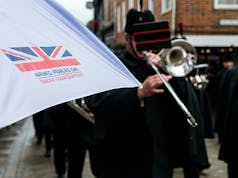
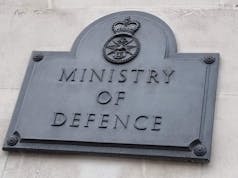

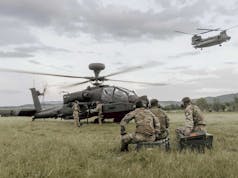

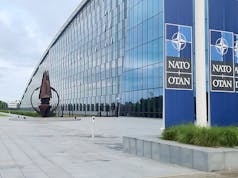
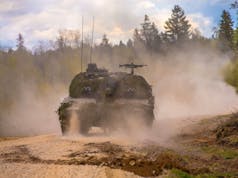

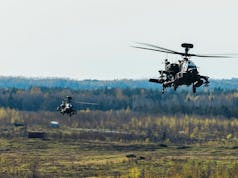

Who first developed this if it is “reverse engineered” ?
Was it a misnomer?
Anyway, something was devoped in italy(?) and we have taken it and developed something (a copy) similar based on the original.
Hmmm, perhaps the intent was to say the thing was reverse engineered.
I would guess that the team generally and the Hi Tech team and facilities at Mercedez F1 at the sharp end in particular would need to take an original and then produce the equivalent using their own capabilities as they would not for the most part have access to the original parts. Such companies in F1 would be specialists in quick prototyping and designing new parts but obviously have to take into consideration larger scale production of those too in some form of production line which is less of an engineering experience for them.
OK. The way I’d read the article made me think it had just been developed by UCL and M Benz F1. A new breakthrough.
Then I read it was already in use in China and Italy!
Confused me somewhat.
See my full detailed reply
Useful but has its limitations, see my full detailed reply
See my full detailed reply
See my full reply
i think the big advantage with these machines the patient does not need to be sedated like they do with the mechanical ventilators,better for the patient in the long run i think…lets just hope this virus goes quick
Yes you are right, but no it is not a cure. CPAP has its limitations, see my full detailed reply.
It might however be useful for those patients “not for ICU” meaning too elderly, too many existing diseases or complex medical history. Those patients who ICU would prove futile.
What we really need, is for the UK paper industry to produce huge numbers of cheap, disposable paper masks, so that we can end this lockdown & get Britain back to work. We have only just come out of a decade of austerity. Six months of lockdown will send us back into it for twenty years.
If you had hand sanitiser at the entrance to every business & everyone wearing masks, we could be back to work sooner & dodge the worst of the economic fallout.
Depends upon the type of mask. If FFP3 then yes could work but everyone would need “fit testing” so that we know mask is proving effective at preventing pathogens eg coronavirus infecting the person.
Then that leads to issues of facial hair, usually if you have a good beard or long moustache the ffp3 masks done seal.
So who is going to tell everyone you have to be clean shaven?
Then issue of mask duration, each mask really only gives 4-8 hours maximum protection, so everyone needs spares. We would need tens of millions per day for the whole country.
Gelling hands is useful but better to fully wash your hands for at least 20 seconds following advice on technique from public health england.
I think there is no escaping social distancing and isolation is here to stay. Otherwise disease gets out of control as it is about too in the USA and we lose 250,000 to 500,000 citizens to coronavirus.
On TV yesterday, they had a leading prof, an expert in viral matters. In normal times he is very sniffy, as are most health experts, about the public wearing masks. He says, doctors & nurses are trained to put them on properly. The public are not.
However, he has looked at countries where large sections of the public are wearing masks & can see the benefits. Given the crisis, there are no double blind trials, just observation. It was said that, for the public, a mask is not so much to protect them, but to stop them spreading Covid-19, if they do not know they have it.
Also, many people briefly touch their face & nose, without realising they are doing it. Wearing a mask, stops most of that.
He also mentioned dosage. A mask may stop most of the Covid-19, meaning you get a tiny dose, that your immune system can cope with, rather than a large dose that overwhelms it. This is just a working assumption, rather than a scientific proof at the moment.
It is interesting that many medical experts who are normally against the public wearing masks, are changing their viewpoint. They stress that masks are not a total solution, but when it comes to cutting the infection rates to manageable levels, they may have a role to play.
I see Rheinmetall has switched to making 6 million masks for the German government. I think a lot of UK factories could switch to mask production, if the Gov asked them.
It is reported that UK Treasury borrowing for this year has leapt from £55bn to £177bn. We need to get the country back to work before we bankrupt ourselves & face another 10 years+ of austerity.
As per parapac/ ventilator article response.
Cpap is not a new or novel therapy, it has been around since 1950s.
The news article and uclh have slightly misrepresented this therapy, I know as I am an ICU clinician with 23+ years full time experience (and ex military).
The evidence from Italy is that CPAP does not stop or prevent the need for intubation (patient being given an anaesthetic and then breathing tube inserted into airway) CPAP may however be a useful delay measure to slow respiratory deterioration and allow time for an ICU plan to be developed.
Plan: who is going to care for patient in ICU, have they got a ventilator, have they got a bed/ staff, what is the patients prognosis? Are they a suitable candidate for ICU or is this CV19 deterioration likely to be terminal?
So a useful therapy but with its limitations, mainly useful as a delay measure to buy time for a plan.
The article is accurate though in that 2 staff members familiar with the system are needed to apply it effectively. It is thus labour intensive. You dont want to apply CPAP too tightly as it will cause sores and wounds to the face, typically bridge if nose. The patient will need frequent eg 1-2 hourly rest periods off the mask to allow eating, drinking, mouth care, taking medication, tissue viability/ break off the mask. Then skilled help reapplying.
Unless the patient is in a cohort area where everyone else is CV19 positive applying CPAP will likely help spread the disease as effectively as coughing into the open air.
Staff working in a cohort area with patients on CPAP will need full PPE, and yet sadly there is a distinct lack of PPPE. Specifically respirators, FFP3 masks, ling gowns.
Final query: could the military not train staff to wear NBC suits and respirators? Have we got enough anymore or any spare sets we could give to the NHS. NBC suits have the advantage of at least being able to be washed or showered down with bleach.